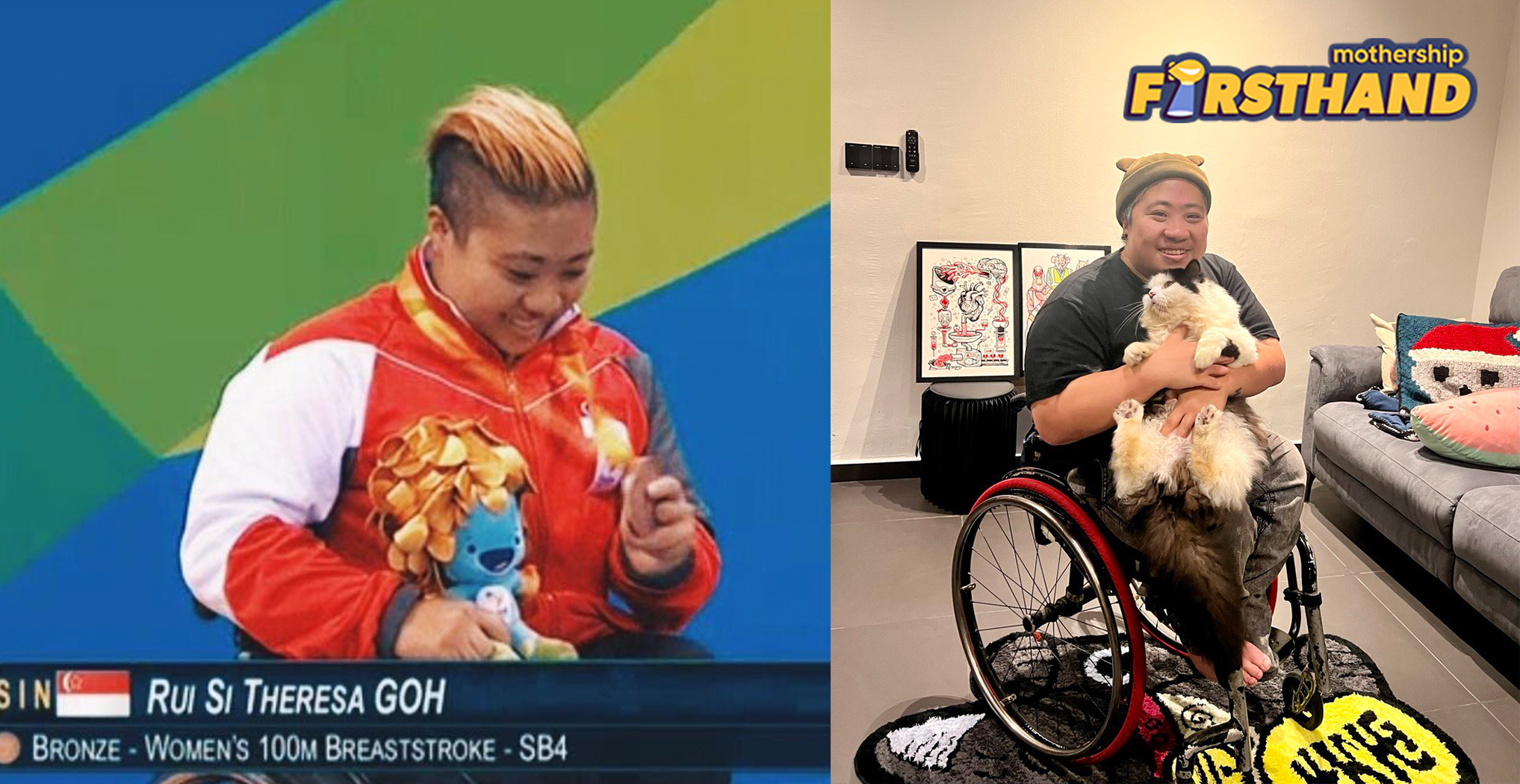Four years after her retirement, Theresa Goh has pieced together a fairly comfortable life.
Like most Singaporeans, she works a nine-to-five. She lives in an unapologetically cool HDB flat in Tampines with two cats and a mildly neglected gaming system.
In her free time, she enjoys making sourdough and coffee. She self-admittedly uses TikTok too much, and reads too little.
I ask if she still swims or gyms. "I don't anymore, I have no time," she laughs; the last time she hit the pool was two months ago.
Goh, 37, is kind of a household name. One of Singapore's foremost athletes, she went to the Paralympics four times, won a bronze medal on her last one, and swam competitively for 20 years before retiring in 2019.
Ever since then, she's been relatively absent from the public eye. Her new life, in all its workaday serenity, is a far cry from the sleek swimsuits and sports jackets she used to live in.
But I'm curious. Athletes often begin pursuing their career at a young age — Goh herself began swimming at five — and push towards their goals with single-minded focus.
For most of her life, sport has been the central pillar around which everything else revolves.
So what happens at the end of the Wikipedia page?
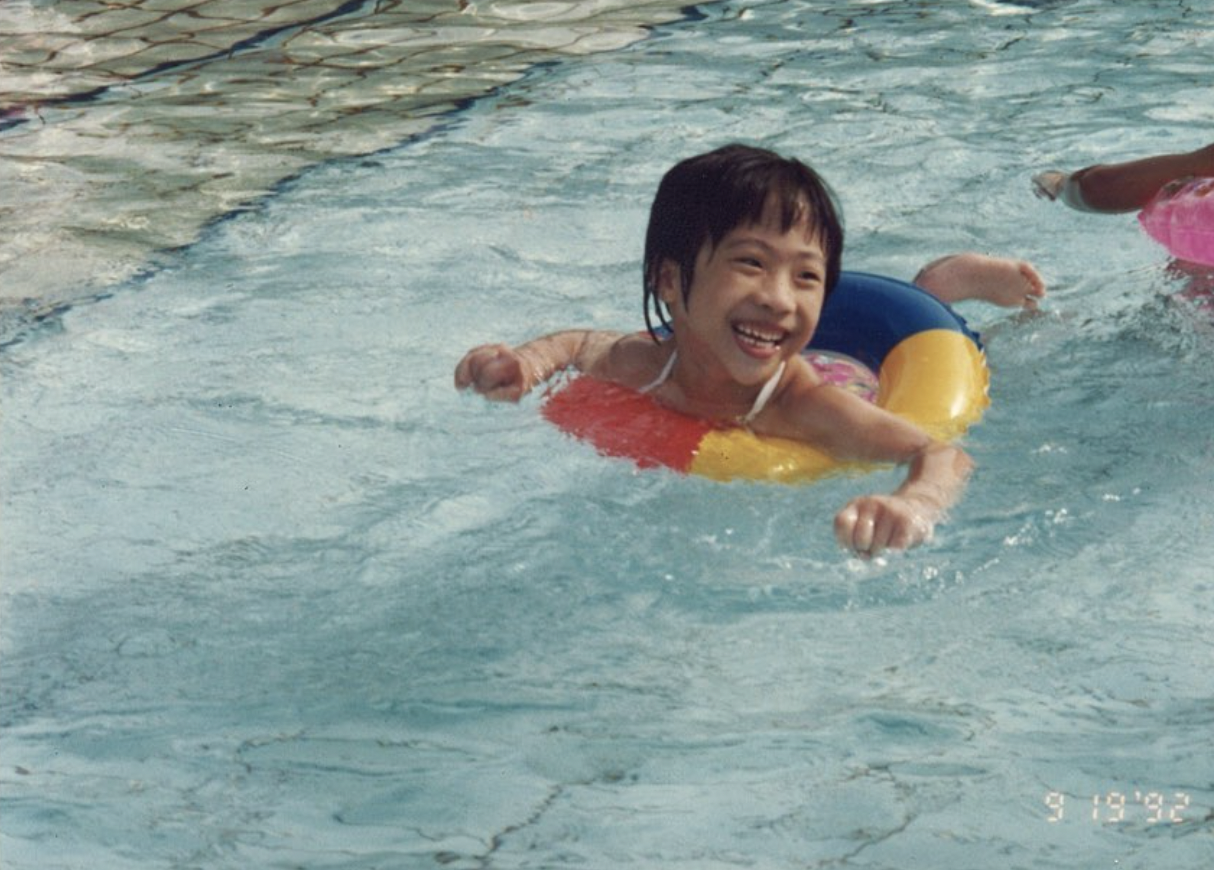 Photo from wheelie_wonka/Instagram
Photo from wheelie_wonka/Instagram
Money, money, money
Retiring was something she doesn't regret; "it was the right time," she tells me, in a frank way that I immediately appreciate.
Still, she had two immediate concerns. The first was money.
"From 2014 to when I quit in 2019, I was under the Spex scholarship. So I was essentially paid full-time to train," she explains.
At that time, she was hoping to buy a house. She would have a mortgage to pay for, apart from bills and daily expenses.
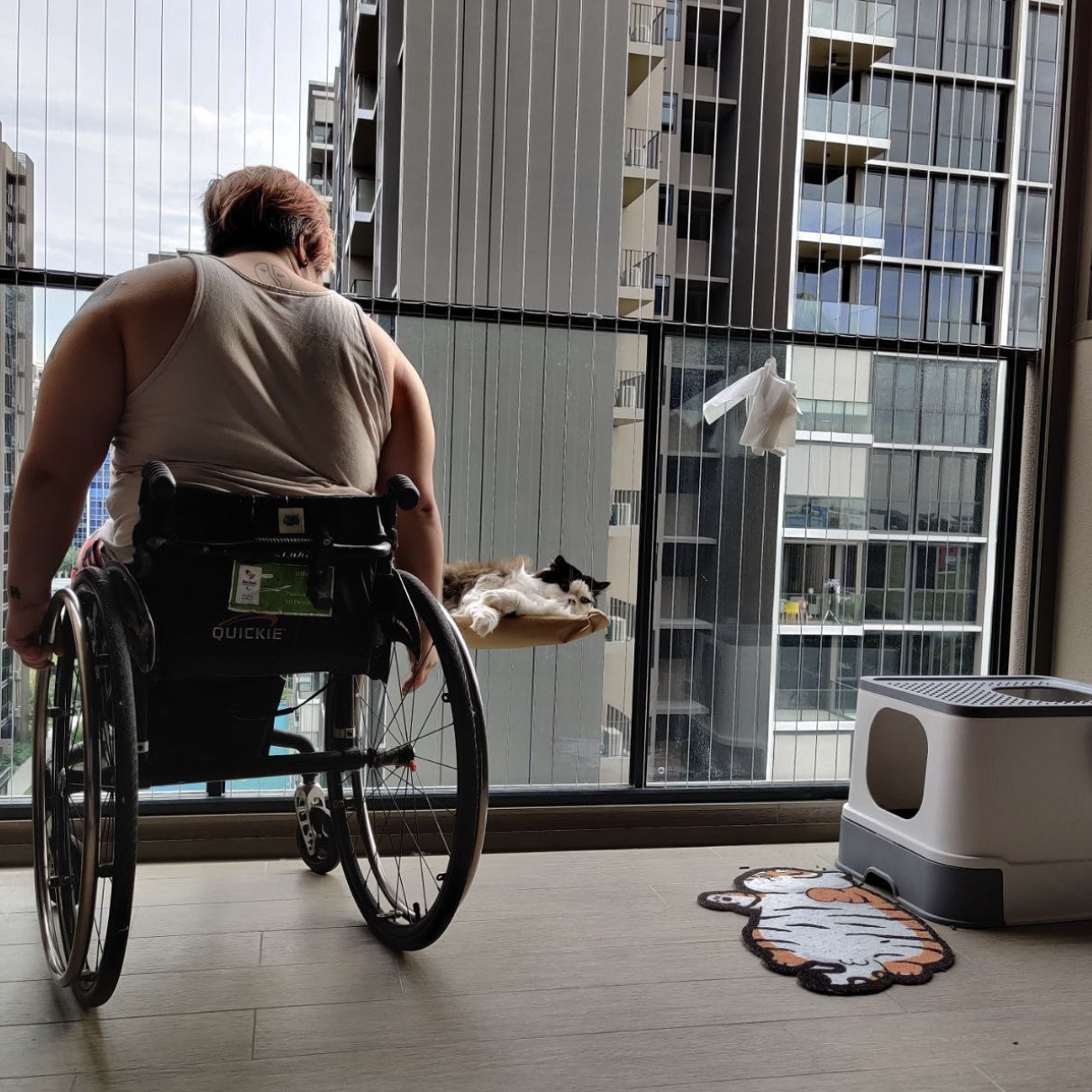 Goh in her home. Photo from wheelie_wonka/Instagram
Goh in her home. Photo from wheelie_wonka/Instagram
On that, Goh is fortunate. Her name helped to open doors, and Singapore's Athlete Life system provides outgoing athletes with support.
But she is cognisant of her own privilege.
"I remember an article online about a para-swimmer [from a different country]. I competed with her so many times.
One day I saw an article of her on the streets selling tissue paper. I was like wah, what happened to the support, and how did she get to this point?
And I thought, wow, how lucky am I? How privileged am I that I don't have to worry about sh*t like this?"
After retiring, she did a stint at SportSG before moving on to the Singapore Disability Sport Council (SDSC), where she works as a sports officer.
It's not a perfect job. More free time would be nice.
Still, she has made peace with her life as it is.
"There's always opportunities," she explains.
"So I'm taking it a year at a time. There's no ideal for me... but my ultimate goal is to get to the end of my life with as [few] regrets as possible."
"Will people forget about me?"
Her second concern, however, was something far more human: it was whether people would forget about her.
"I quite like the peace and calmness. I'm okay if people forget about me, to be honest," she admits.
"But it's also a double-edged sword. I like having that recognisable quality, because then I'm able to have a say in certain things.
If I'm forgotten, I wouldn't have that impact."
There's not much she can do about whether or not the public forgets her.
But she can continue making an impact.
At the SDSC, she helps athletes establish their sport pathways. This includes everything from managing trainings to picking the right competitions to help them progress — and particularly, planning the year's budget.
"Money is hard to come by," she says wryly.
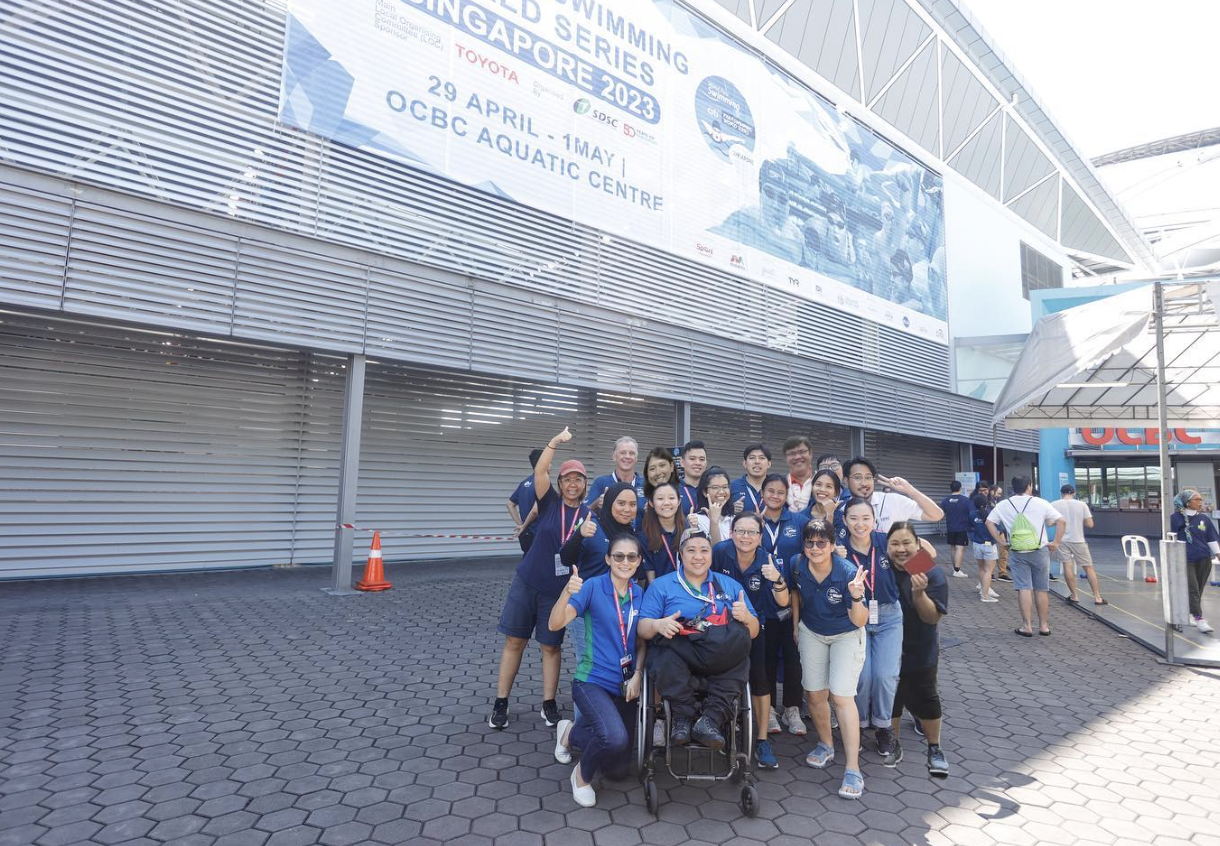 Goh, working on the World Para Swim Series. Photo from wheelie_wonka/Instagram
Goh, working on the World Para Swim Series. Photo from wheelie_wonka/Instagram
There's also the human aspect. In her 20-year career, she has experienced pretty much everything an athlete can go through: from victory to burnout to crippling insecurity.
Now, with this wealth of experience, she wants to give back. "It was almost a responsibility," she says, "because of what [the system] has given to me. They were basically the ones who brought me up, from when I was five."
Organisations like SportSG, SDSC, and the Singapore National Paralympic Council have guided her to her accomplishments. They identified her talent, groomed her, and supported her — physically, financially, and emotionally.
But they've also seen her through her most devastating defeats.
Goh recalls how after failing to medal at the 2008 Beijing Paralympics, she struggled to step in the pool for months afterwards.
"I felt like I'd given my 100 per cent. [So] my whole world came crashing down. I felt like like the world was gonna stop, everybody's gonna hate me... it really felt like that, because I had placed a lot of pressure on myself."
"It was the first time my coach ever saw me cry."
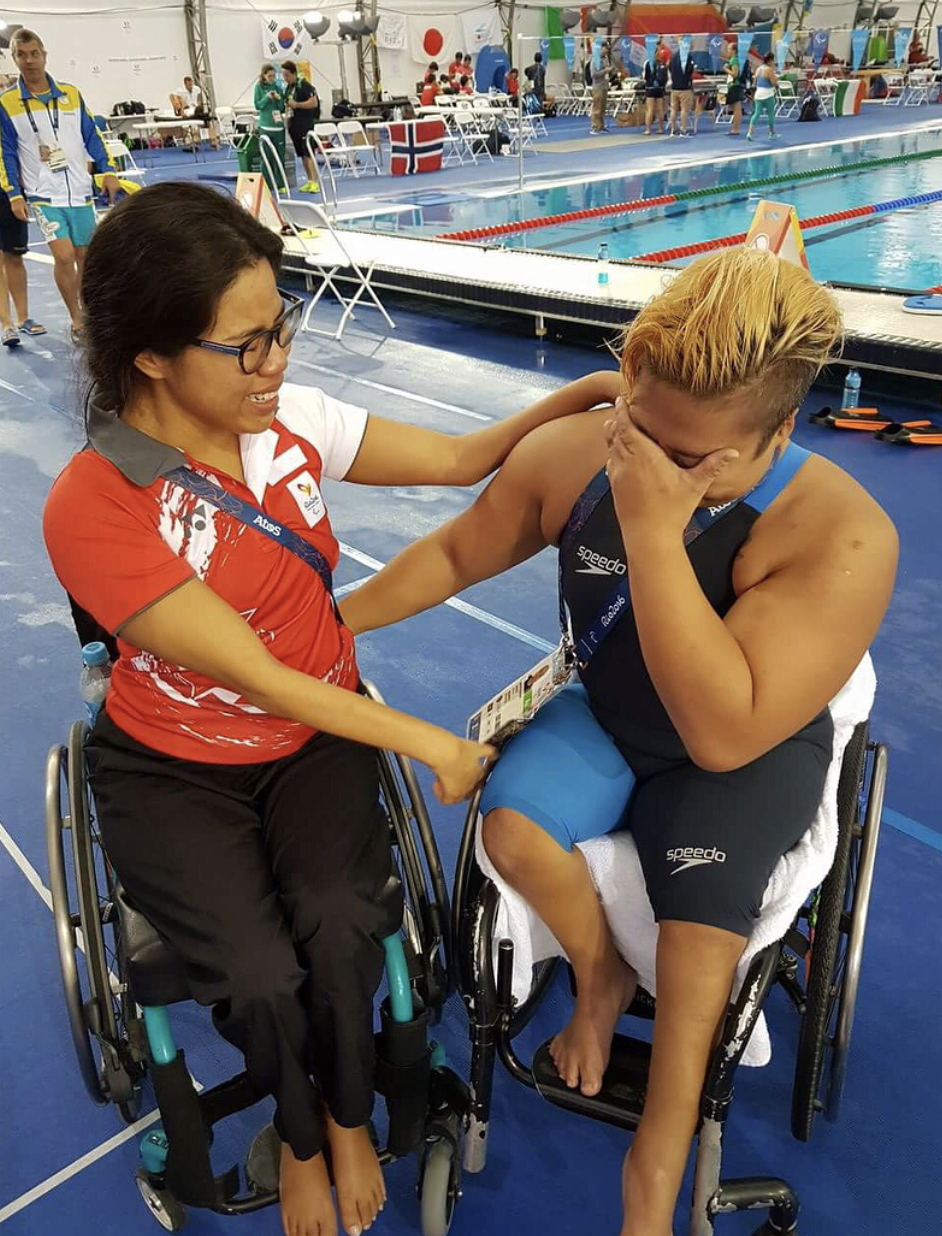 8 years later at Rio, when she finally won her Paralympic medal. Photo from wheelie_wonka/Instagram
8 years later at Rio, when she finally won her Paralympic medal. Photo from wheelie_wonka/Instagram
Creating meaning
Her experience post-Beijing remains, to this day, her sole regret in her career.
"I struggled with it for years on my own. [Because] ego.
I didn't reach out to anybody, because I don't like asking for help, or people knowing that I'm sad, or upset, or weak."
Now, in her role as a sports officer at SDSC, she's had the opportunity to mentor athletes who have gone through similar situations.
There are several things she tries to convey. But the most important is affirmation.
"As far as I can, I try to emphasise that our value is not based on this one event. It sucks, it sucks big time.
But in three weeks, one month, two months later... you will understand that it is not your whole life. It's one thing, it seems important now, but look forward."
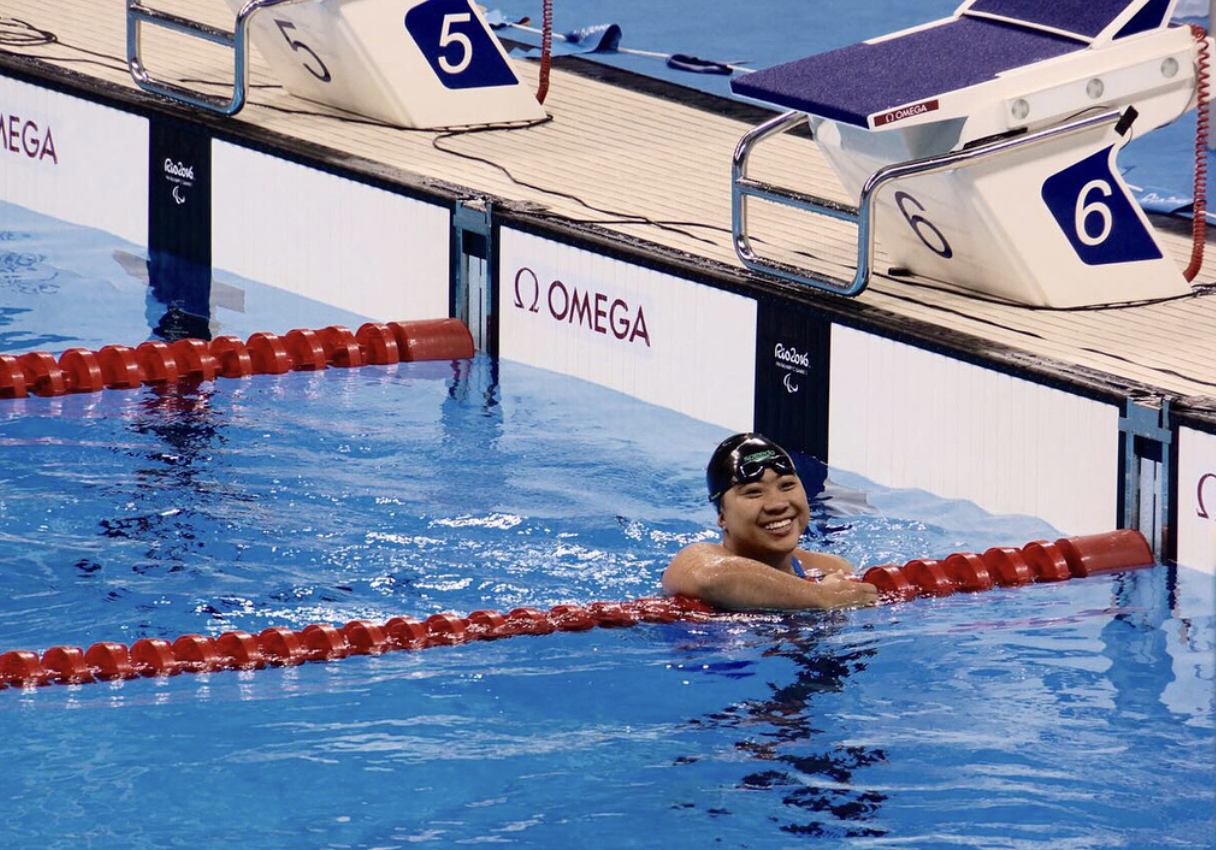 In Rio. Photo from wheelie_wonka/Instagram
In Rio. Photo from wheelie_wonka/Instagram
Goh is clearly passionate about her work with younger athletes. But I'm genuinely curious; has she ever considered doing something completely unrelated to sports? Art, business, law, engineering?
"I've definitely wondered about what life would be if I never took up sports," she muses.
After retirement, and even while she was still an athlete, she has played with the idea of quitting.
Training "is not that fun", as Goh herself puts it; it's routine and pressure and physical and emotional exhaustion, and all for the mere chance of victory.
Sports is a particularly cruel field. No victory, no reward; and there is so very little room at the top.
"All my friends were going out having fun," she recalls. "I was just training, and training is not that fun. It was a dilemma for me whether I really wanted this life."
"But the truth is, I have no idea. It could be good and bad... and when I look at it now, I'm really happy with how things have turned out.
I have nothing to complain about. I wouldn't change it lah."
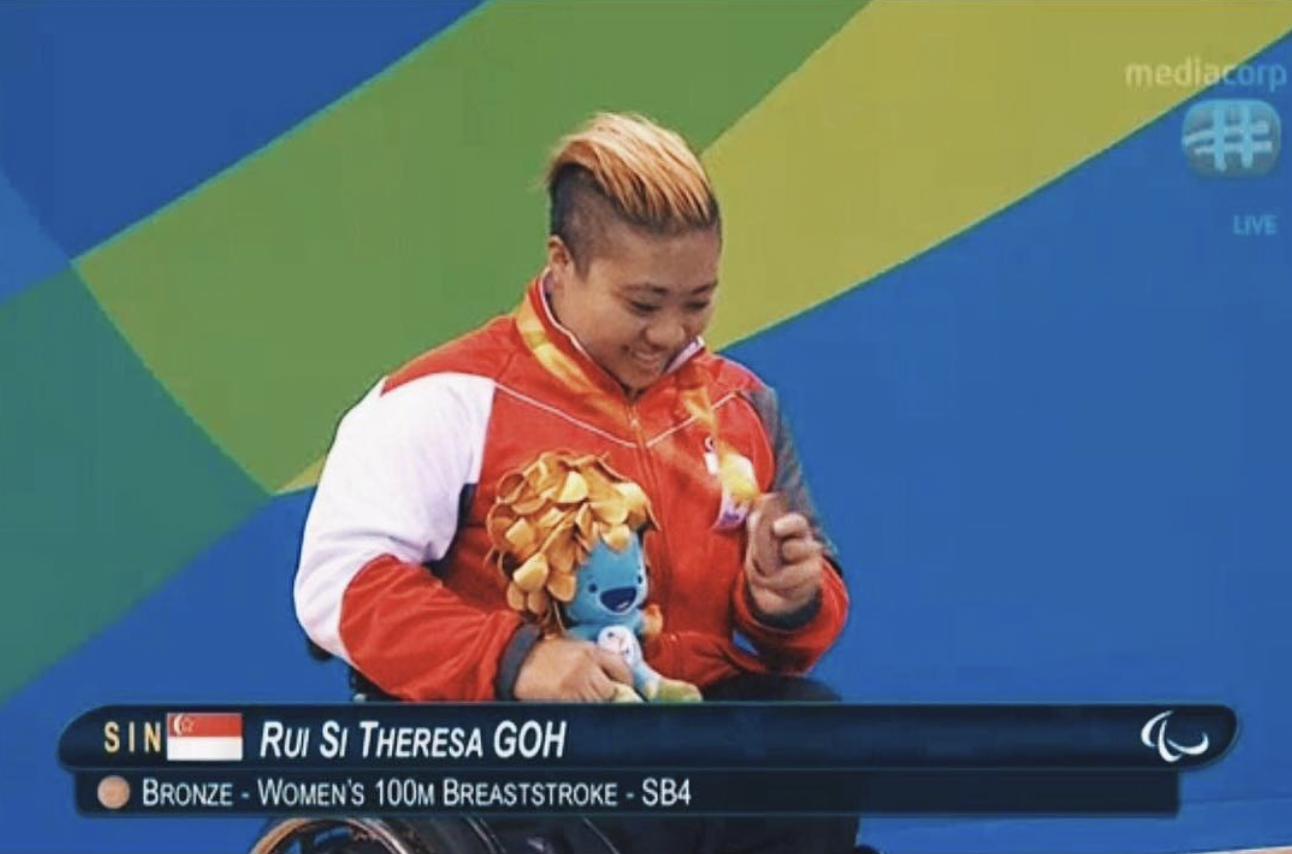 Photo from wheelie_wonka/Instagram
Photo from wheelie_wonka/Instagram
The existential crisis
It's always kind of surreal when a figure you've only ever seen on-screen comes to life in front of you.
In her photos, Goh is tanned and tough-as-nails. She is striking with her bleached hair, intimidating with her muscle; and when she swims, her sheer physical power is undeniable.
This is an athlete, the pinnacle of physical performance.
It is not till close to the end of the interview that she betrays the first hint of real vulnerability. Time has dulled the edge of her past failures, and she speaks of them easily.
But when it comes to talking of the future, Goh is less sure.
"When I hit 30, that was when I had my whole existential crisis. What am I gonna do with my life, am I gonna be happy? And I really thought about the fulfilment of life at that point... death has such a permanence to it," she explains.
"So I need to find that point again where I feel happy, completely, with everything in my life."
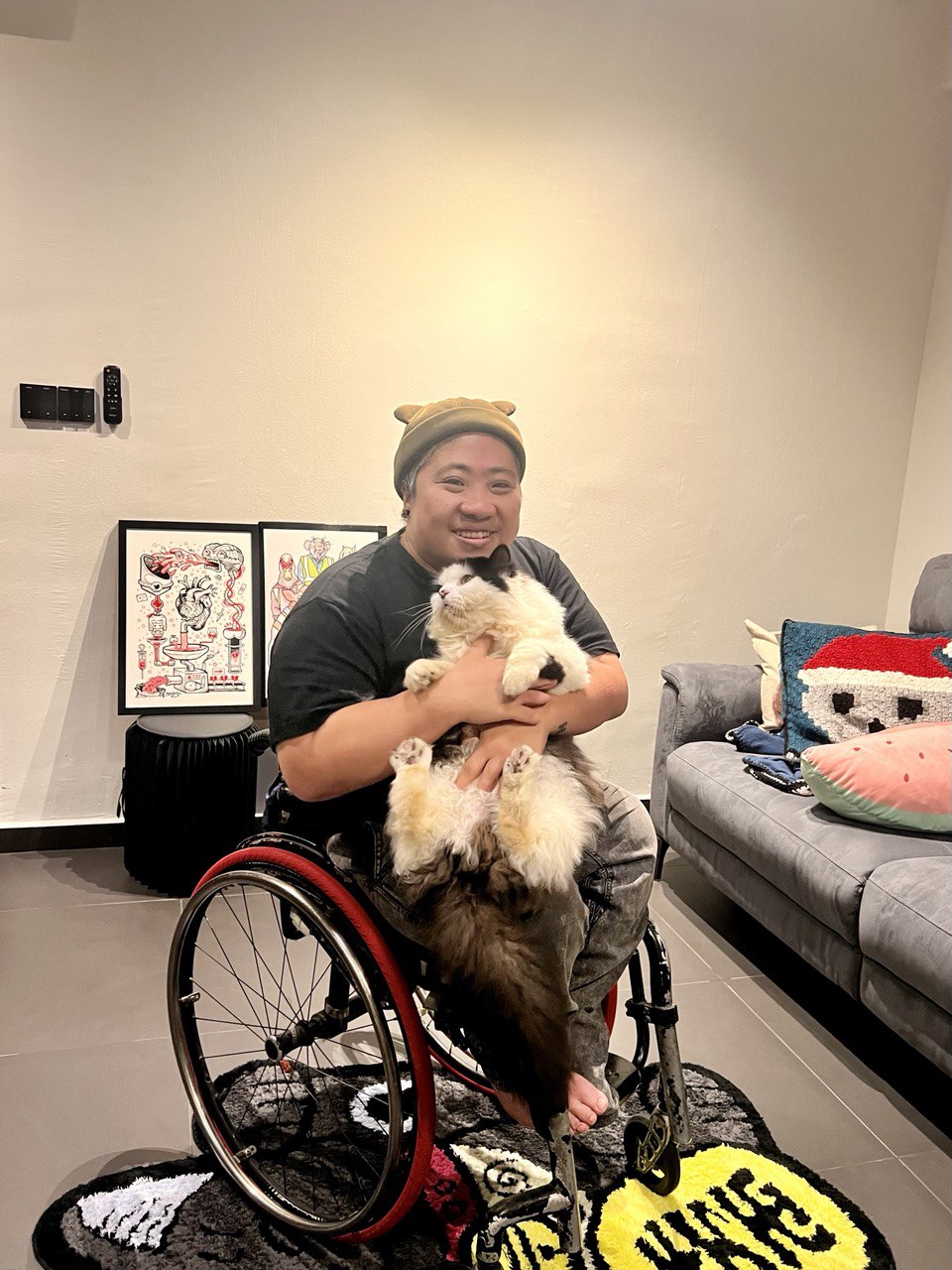 Photo by Mothership
Photo by Mothership
Right now, she's content with her desk job. She has no complaints; it's just not something she wants to do forever.
I ask the golden question: "Do you miss being an athlete?"
"I do, I do," she says wryly.
For all the heartache of sport, she's considering going back. Javelin or wheelchair rugby are two options she's eyeing.
"There are a lot of sports that I think I could get back into," she says.
"But again it's energy and time. Training is such a commitment, right, and I don't like to do things half-assed.
If I want to join something, I will put my all into it."
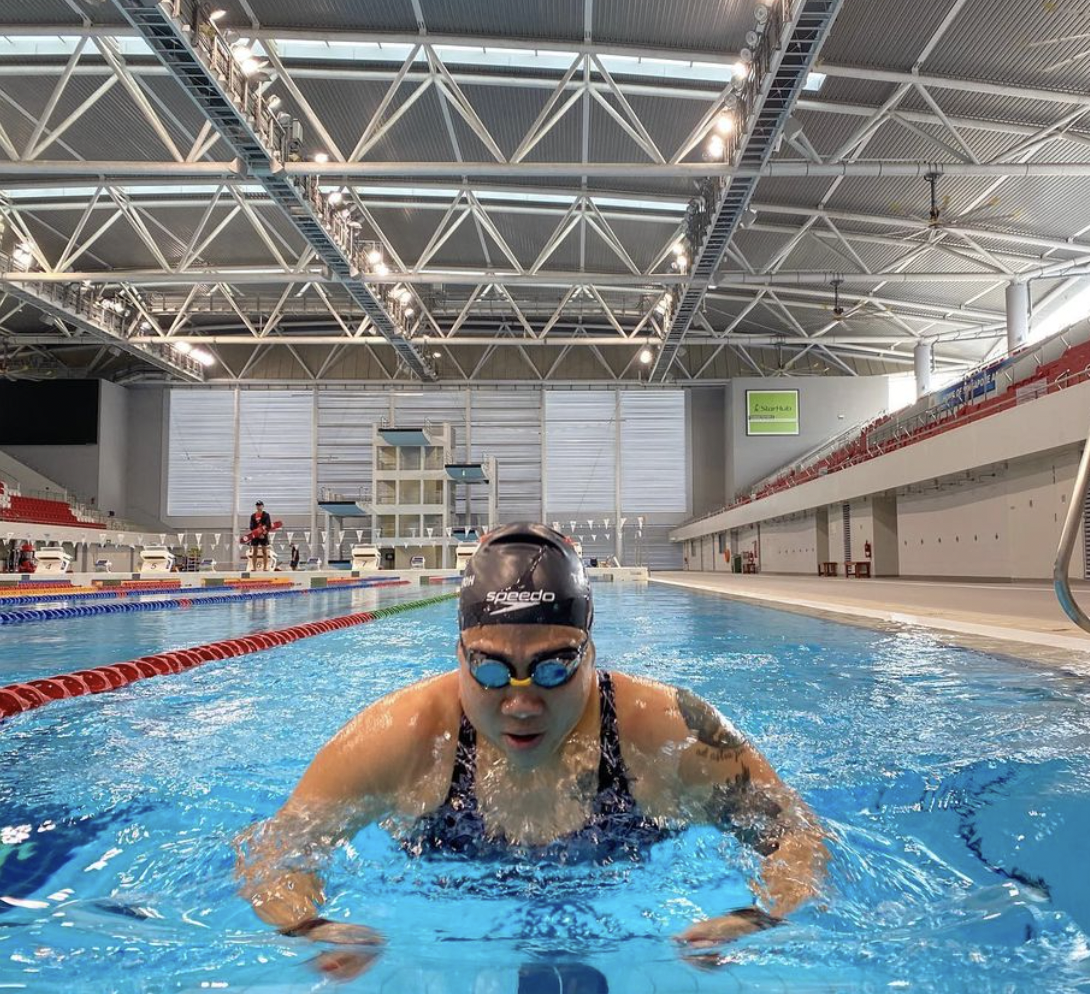 Photo from wheelie_wonka/Instagram
Photo from wheelie_wonka/Instagram
Top image from wheelie_wonka/Instagram and Mothership
If you like what you read, follow us on Facebook, Instagram, Twitter and Telegram to get the latest updates.

